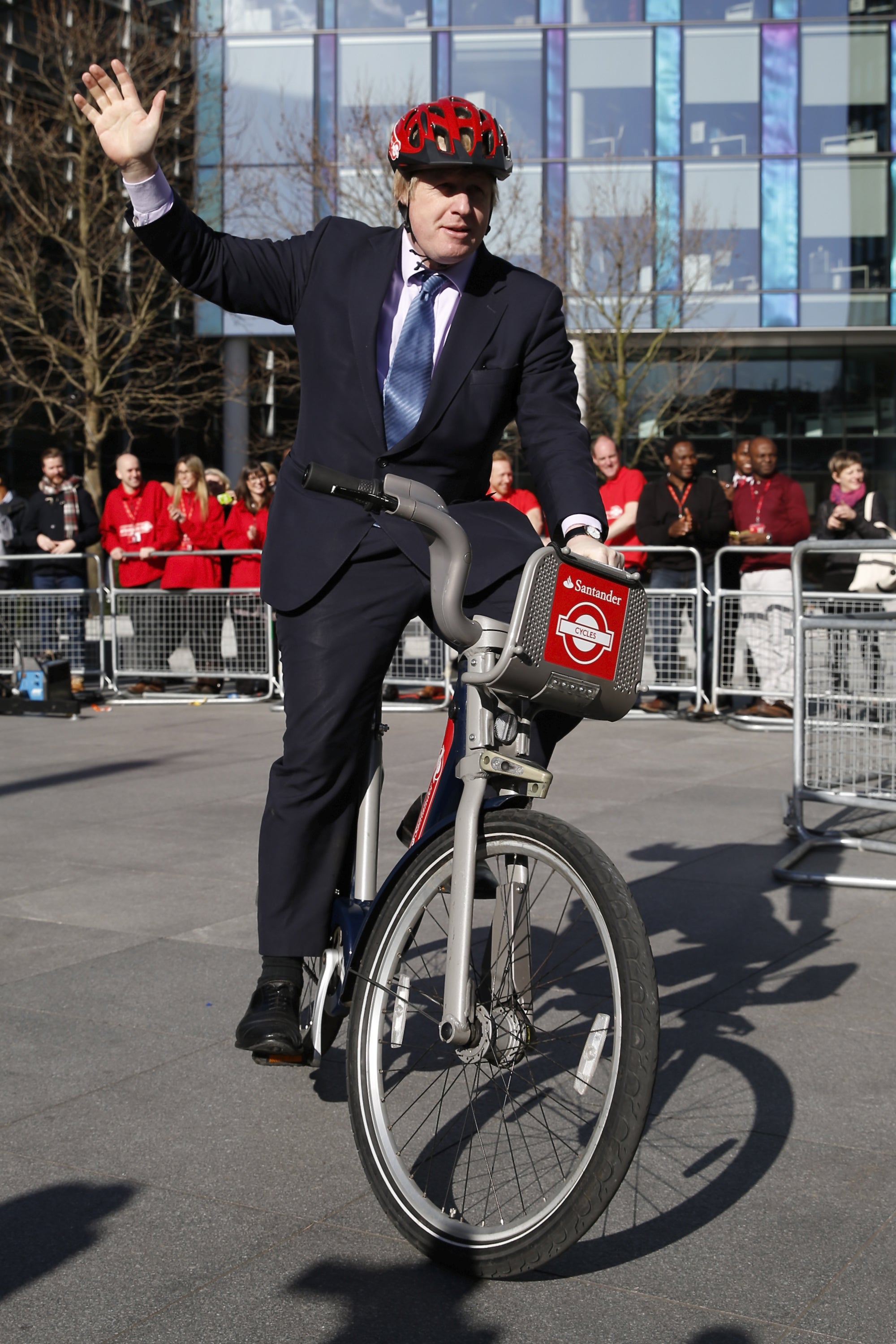Tunnel vision: Another grand Boris Johnson-inspired plan on the scrapheap
The prime minister has, over the course of his political career, unveiled a series of grand visualisations that either don’t get off the ground, or encouter reality – with messy consequences. Sean O’Grady considers some of his past ideas that didn’t quite make the grade


The prime minister is probably unequalled in the democratic world (leaving aside the more sycophantic dictatorships) in the number of things named after him. Boris buses, various Boris bridges, Boris Island (a putative airport in the Thames estuary that never, erm, got off the ground)… some have had more going for them than others, and some haven’t really existed outside Boris Johnson’s imagination. The latest casualty is the “Boris Tunnel”, a plan to connect Northern Ireland (and the island of Ireland) with Scotland, between Belfast and Stranraer, roughly following the present short ferry route.
The scheme was, so far as can be judged, to stimulate trade across the British Isles, of particular use post-Brexit, and to create a land link to better cement Northern Ireland within the United Kingdom. Ambitious and visionary as it may have been, the scheme did not commend itself to the prime minister’s (now former) senior adviser, Dominic Cummings, who called it “the world’s most stupid tunnel”. Even at this distance, one can almost sense the sadness in the prime minister's eyes as he read his Svengali’s verdict on his brainchild. More to the point, the chancellor of the exchequer, Rishi Sunak, a man who was supposed to have been Mr Johnson’s obedient chief bank clerk, a sort of human overdraft for his madder ideas, has axed the bridge scheme. The Treasury has thus saved a handy £15bn, a modest contribution to putting the public finances back on track. Mr Sunak’s sultans of swing have ensured that the headlines made clear that it was he who euthanised the prime minister’s latest pet project.

It is something of a pattern in the prime minister's career – grand visualisations that sooner or later encounter reality, usually with messy consequences. The “Boris Bus”, for example, was a bold attempt to marry nostalgia for the old London AEC Routemaster model, a fine piece of industrial design, with modern features such as closing doors, air conditioning and hybrid electric-diesel power. Unfortunately not everything worked well, the old-style conductors never materialised, and it was expensive to buy and run – albeit made in the UK by Wrightbus of Northern Ireland. Passengers found its glassy design, by Thomas Heatherwick, made it hot in summer, giving it the unfortunate nickname of “sweat box”. In 2016 Johnson’s successor, Sadiq Khan scrapped plans to build any more. The Boris bikes were more successful, and still popular in the capital, but, in truth, they were Ken Livingstone’s idea, inherited by Johnson.
Similar practical problems attended the “garden bridge” over the Thames, a proposed bridge between Britain and France (which would have added a further dimension to the migrant crisis), the bridge planned between Britain and Ireland, the third London airport off the north coast of Kent, the cable car across the Thames in east London, the Anish Kapoor helter-skelter Olympic sculpture, and the new royal yacht Britannia (named after Prince Philip) among others.
The weakness in the governance of London and indeed the UK is that a wilful mayor or premier such as Johnson can list the system quite hard in pursuit of their bright ideas, commissioning designs and getting studies done. The strength of the British ethos of political accountability for public money is that such schemes usually fizzle out before too much damage is done. (Usually: Concorde and a long-defunct early warning plane for the RAF, the Nimrod, are prime examples of prestige extravagance on a monumental scale.)
Johnson, like other borderline megalomaniac leaders, obviously likes the idea of some enduring physical monument to his time in office, and to some extent he has already achieved that ambition, at least in London. For the moment, however, he is yet to leave behind something that seems likely to inspire the nation, let alone the world. Often as not, in fact, the Johnson name has been synonymous with waste and failure. He will have to keep that fecund mind of his at work a while longer.

Join our commenting forum
Join thought-provoking conversations, follow other Independent readers and see their replies
Comments